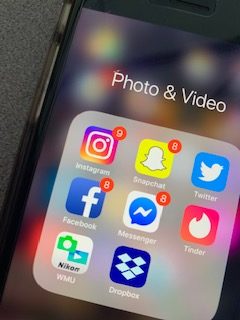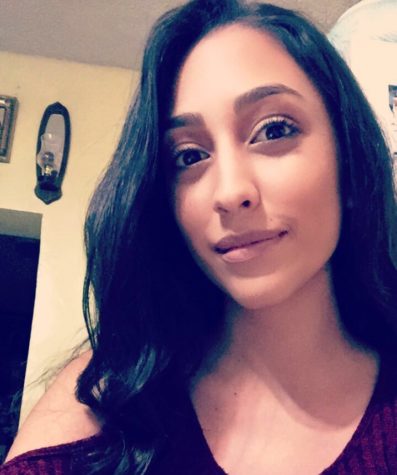Our First Amendment Rights Begin at Birth and End at Public Schools

A students social media.
February 1, 2019
The First Amendment in the Constitution, which grants the freedom of speech, has been the backbone of America’s “land of the free” reputation.
Most Americans use Freedom of Speech to express their opinions, and although the Amendment sounds simple enough, there are limitations.
For example you cannot yell “fire” in a crowded or a public place if it’s not true because it will bring more harm than help. So where does Freedom of Speech play a role in schools?
In 1965 two students wore black armbands to protest the war in Vietnam and were suspended. The ACLU represented them in court in Tinker v. Des Moines for four years. In 1969 the court ruled that the First Amendment applied to public schools and school officials could not censor student speech unless it interfered with the education process.
Later in 1983 a high school senior from Pierce County, Washington wrote a speech nominating a classmate for vice president. The speech itself was filled with innuendos, and school officials suspended him. When the case Bethel v. Fraser, was taken to the Supreme Court, it was ruled that the school did not violate the First Amendment. The Court ruled that certain styles of expression, such as sexually vulgar, were not protected in public schools.
Now, in 2019, our freedom of speech is being tested once more. In Alabama, a school has begun to stalk student social media profiles and suspend the students for school code violations. Unfortunately, the policy has affected students of color disportionately. According the ACLU, 85% of the students expelled were people of color, a frightening number for a town that is more than 60% white.
The alleged violations ranged from dancing videos to even a young girl wearing a sweatshirt with her father’s picture after he was murdered. The school claimed it had “gang-related” messages.
These new policies regarding freedom of speech could seriously affect students. It’s sending out a message that they cannot express themselves or speak out on what they believe such as in the case of a North Carolina school. Two black girls were suspended after reposting a video of a white classmate using a racist slur and talking about gun reform policies. Freedom of speech is allowed, but using a slur has intentions to harm a person due to its historical background. The girls were speaking out against this and were suspended because of it.
Stalking students social media accounts is unfair. The young girl wearing the sweatshirt did not present a threat to anybody. Teenager’s expressing themselves in dance is the same as wearing a black armband. Schools have no right to stalk our social media accounts and suspend us for things that do not have a harmful principle. Freedom of speech should be a public school’s ally, not a tool used against students.

